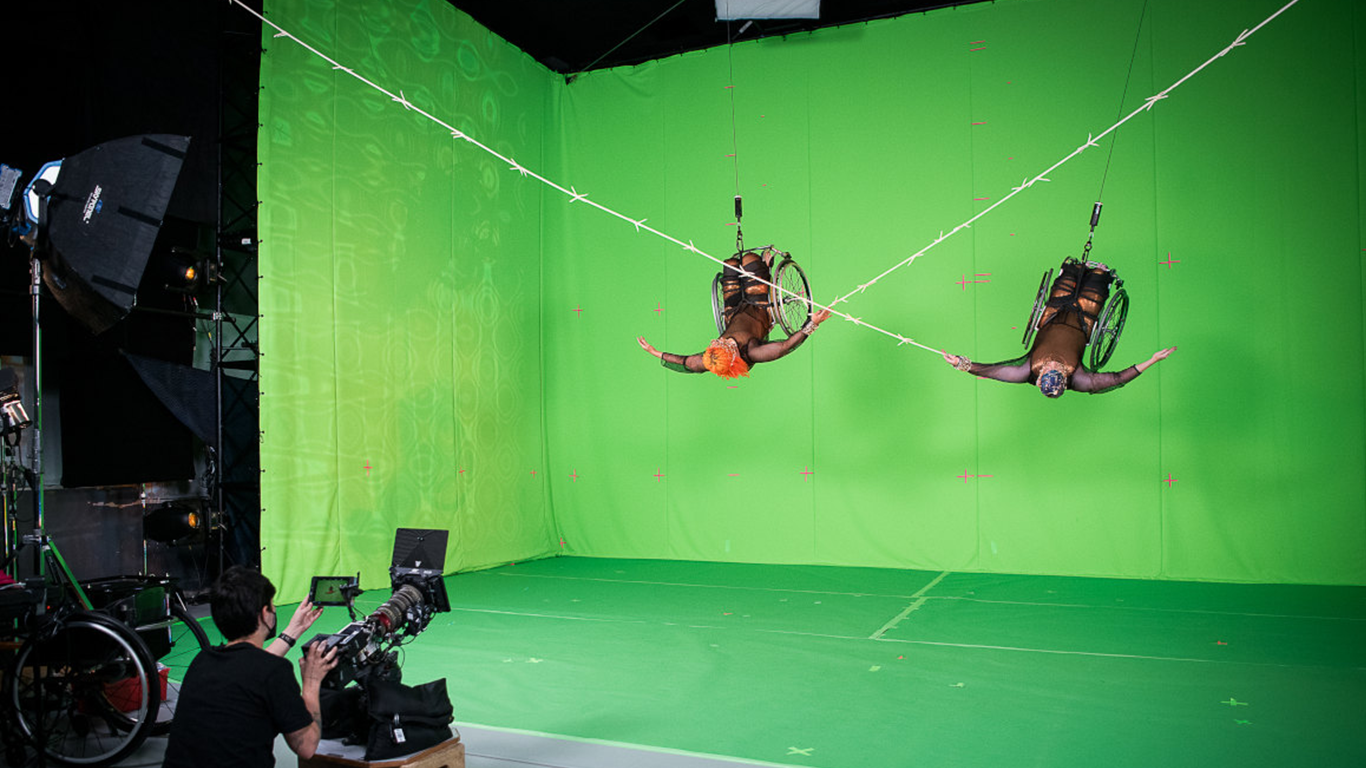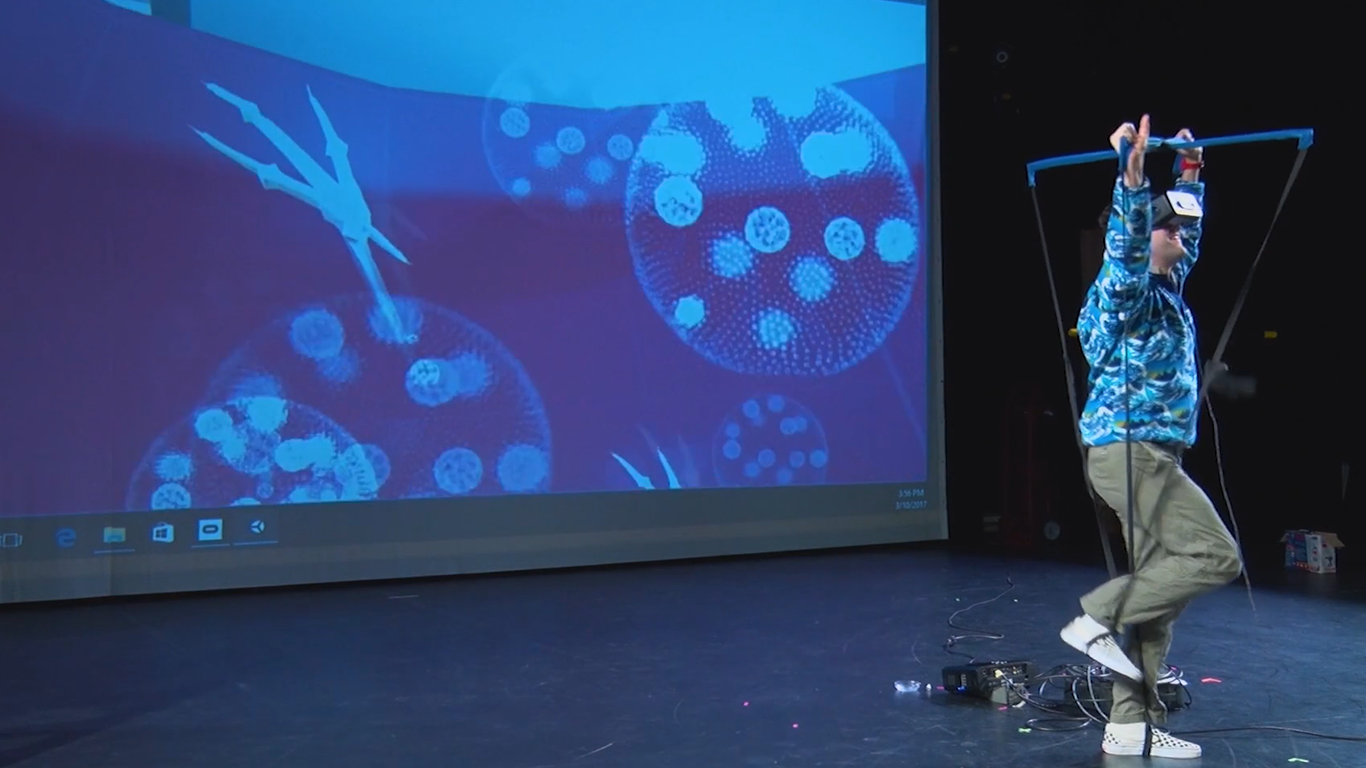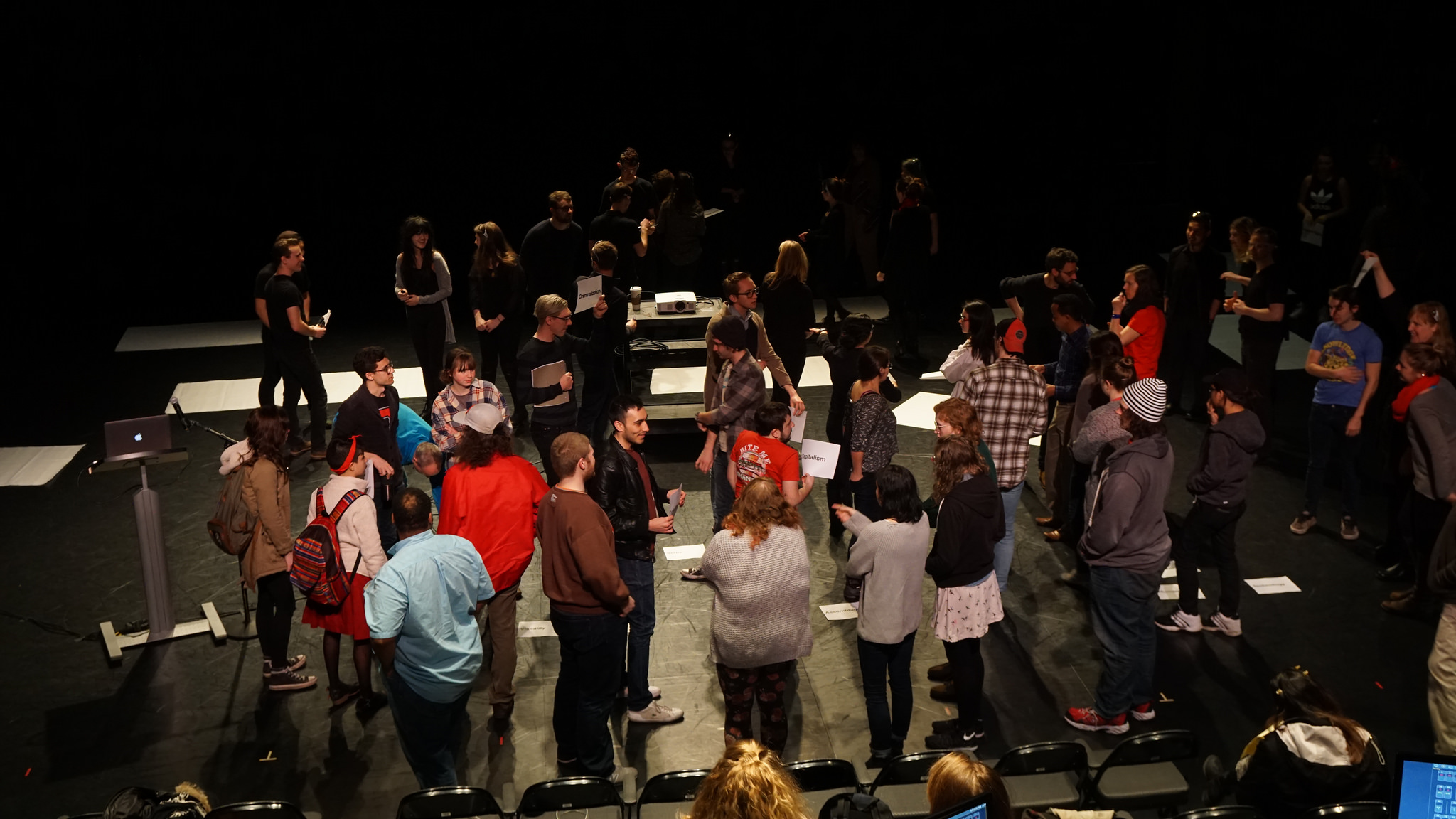XR Performance Research Partnership with Doris Duke Foundation
ACCAD Professor Norah Zuniga Shaw is partnering with the Doris Duke Foundation (DDF) to lead a national research exchange exploring how extended reality (XR) and generative AI are transforming the future of live performance. Effective use of extended reality (XR) technologies in performance is still emerging and there is a need for knowledge sharing, field-building, and increased coordination by key centers of innovation to support critical and creative engagement by performing arts professionals. This research starts with an emphasis on Pre-Visualization (previs) as an area of XR Performance primed for rapid and innovative application as well as experimentation relevant to other stages of the creative process. XR Previsualization, or “XR Previs,” allows artists to build worlds and refine creative ideas in immersive digital environments before bringing them to the stage, gallery, or public sites of performance. It also supports iteration after initial production, adaptation for new sites of performance, and integration of physical and digital space, time, and presence that impacts what kinds of performances are made. The goal is to build the field and unearth new possibilities for performance—bridging the gap between concept and live production, and allowing for more responsive and economically sustainable production workflows.
Together we ask:
- How might existing labs and technology-enhanced performance spaces better connect with each other and with working artists to support development of performance using XR?
- How can we improve accessibility for artists and audiences to co-create theater environments and participatory design frameworks in XR that address specific needs and opportunities, and embrace disability aesthetics including non-visual approaches?
- What are some of the barriers and opportunities artists face for taking up the process-changes we are exploring?
- What are the new practices required of presenters, producers, dramaturges, residencies, and curators to support artistic creation and production?
- How might XR Previs enhance or alter both pre and post-production workflow to create immersive spatial environments, innovative designs, or generally alter the digital performance space, touring, and distribution of works?
- What are the ethical and economic implications of such transformations?
- What are the emergent aesthetics?
- What role might this approach play in the resilience and preparedness of performance practices in future pandemics or environmental crises?
- What are the different cultural, aesthetic, technical and creative starting points that we bring to this research and what new opportunities do these perspectives and contexts bring?
While we are centering XR Previs, this work has implications for effective use of, access to, and innovation in XR at all stages of production from composition and pre-visualization/design to new modes of performance and audience engagement, archiving, and distribution.

Think Tank at ACCAD
Central to this partnership is an invited research intensive in person May 7–10, 2025, at ACCAD, bringing together a cohort of national leaders in performance—including artists, curators, presenters, producers, and technology researchers. This knowledge sharing intensive started in early 2025 with a series of Friday Digests (online keynote talks, discussions, workshops, and community building events) leading up to the in-person gathering with special keynotes by Jennifer Roberts-Smith and Alice Sheppard.

Participants in the convening include internationally recognized leaders from across the performing arts landscape selected from a cohort of allied projects submitted to the Foundation’s open call for the Performing Arts and Technology Lab.
“Following our spring 2023 open call, we identified an opportunity for meaningful collaboration among the projects and approached Norah Zuniga Shaw about heading up this special initiative given her and ACCAD’s leadership in this area. We are thrilled to partner with them to explore how pre-visualization, and related XR design approaches will increase artist access to theatrical experimentation," said Ashley Ferro-Murray, program director for the arts at the Doris Duke Foundation. "It is important that artists and arts workers are leading this technological research to meet their evolving creative needs."
Professor Zuniga-Shaw’s leadership in this initiative continues her longstanding commitment to humane technology work through embodied practice and considerable support she has received from Ohio State’s Global Arts + Humanities Discovery Theme and Ohio State’s Office of the Vice Provost for the Arts for this work including the Collaboration for Humane Technologies and Livable Futures.


The convening will spark new ideas and collaborations through hands-on labs, creative and critical engagement with technology, interactive discussions, and immersive prototyping sessions focused on XR performance and previsualization. At the core of this effort are ACCAD’s XR Sandboxes—experimental, immersive environments that allow performance creators to prototype and refine artistic ideas in virtual and physical space. The XR Sandboxes offer an opportunity for deep experimentation and embodied design in virtual space, making space for artists and technologists to push the boundaries of performance-making in ways that center care, access, and collective imagination.

Faculty and staff at ACCAD play a vital role in this initiative, including Vita Berezina-Blackburn, a specialist in motion capture and virtual reality whose expertise in immersive media deeply informs the XR Sandboxes, and Jeremy Patterson, ACCAD’s XR developer and systems designer, who has led the development of custom interactive tools and environments that power real-time collaboration and previsualization. Their expertise, alongside contributions from ACCAD faculty and staff members Alex Oliszewski, Michael Hesmond, and Jean-Yves Münch, as well as the Ohio State graduate students working with them, reinforces ACCAD’s reputation as an international hub for research and experimentation at the intersection of performance and technology. Through collaboration, we are engaging critically and creatively with XR technologies and generative AI to explore the future of performance—seeking possibilities for making it more accessible, more collaborative, and more sustainable.
Participating Researchers
CO-FACILITATORS
Jennifer Roberts-Smith, Co-Facilitator (Professor, Chair of Dramatic Arts, Brock University, Canada)

